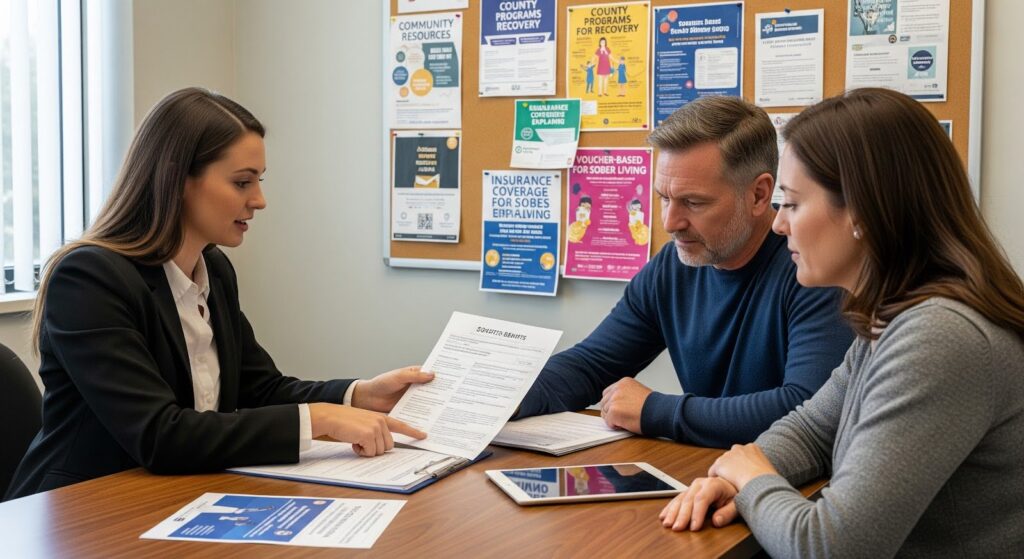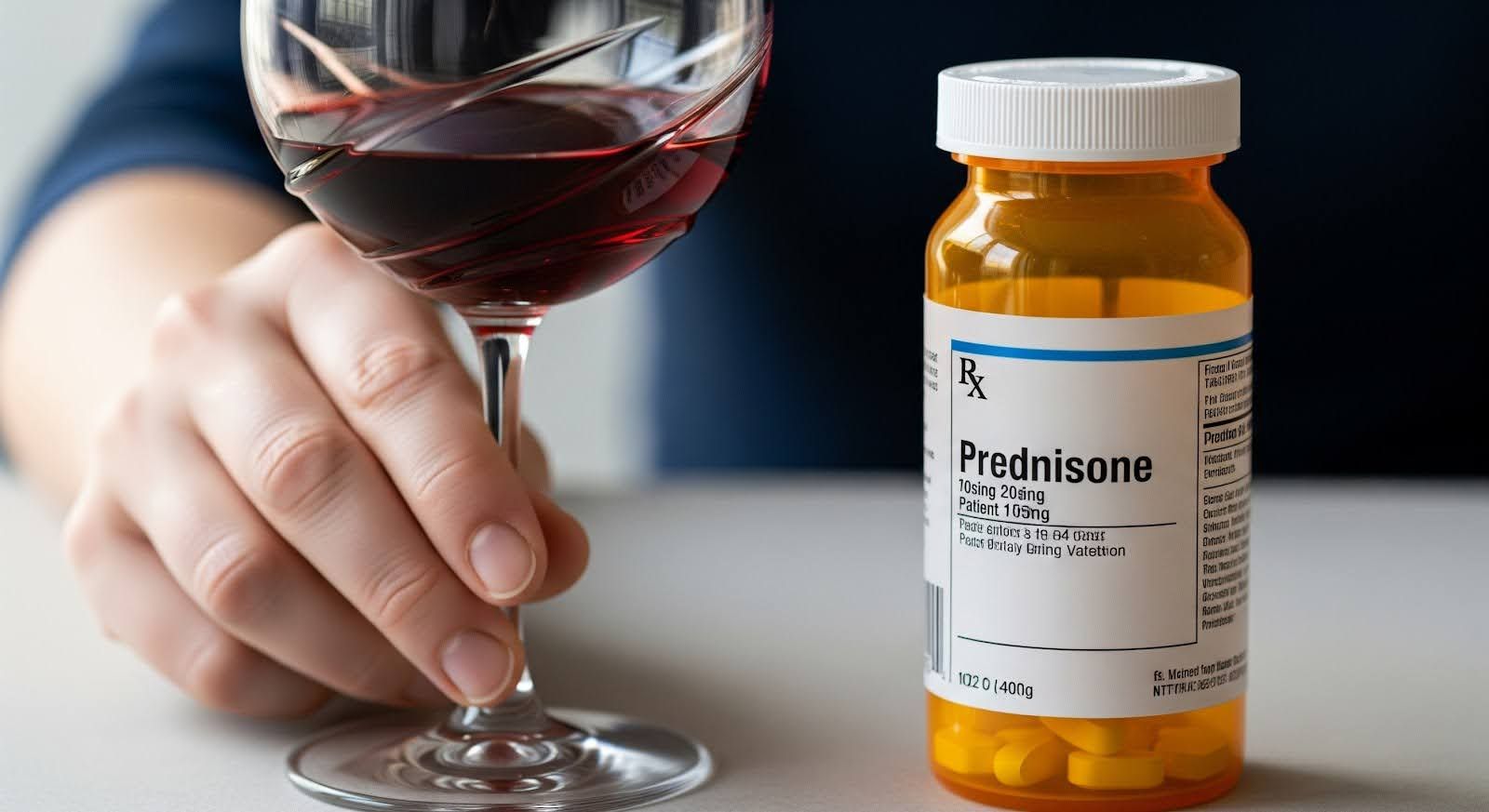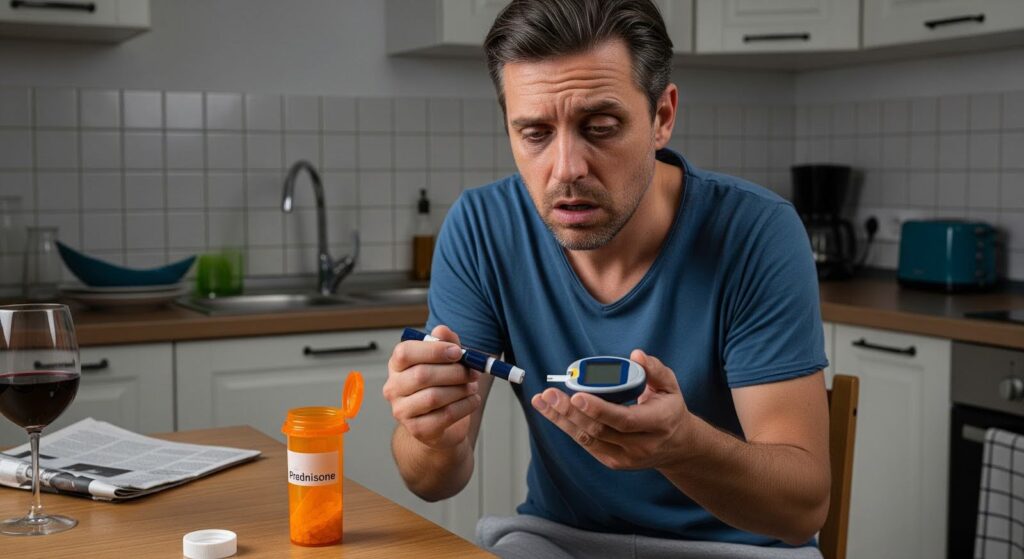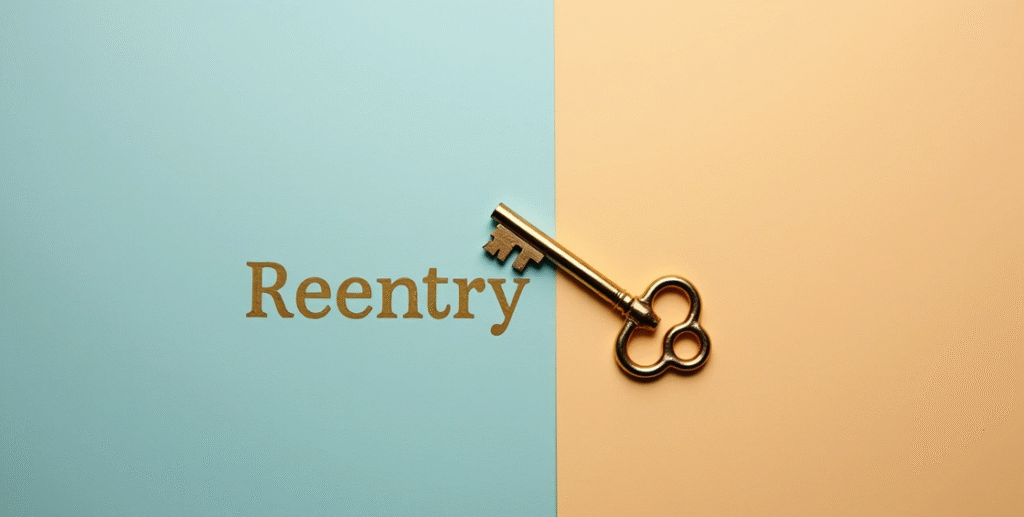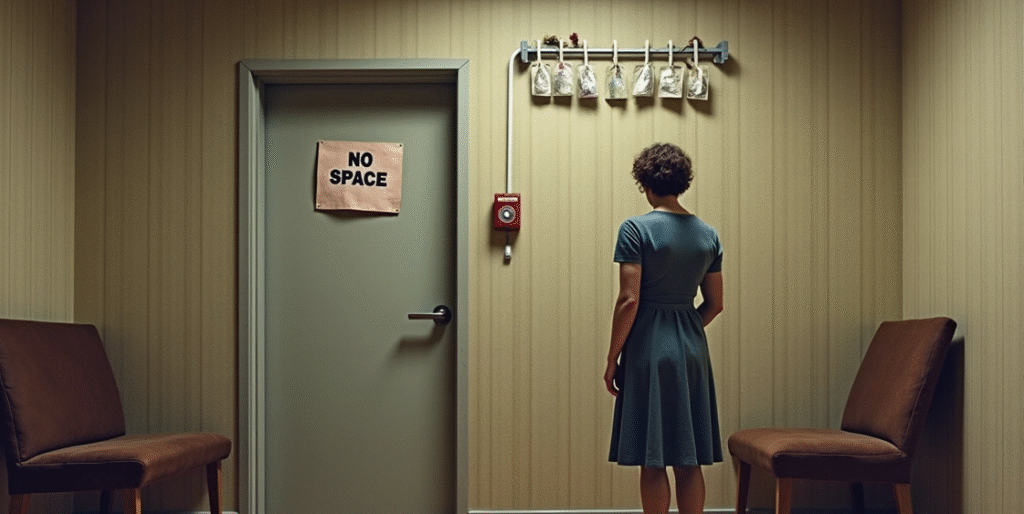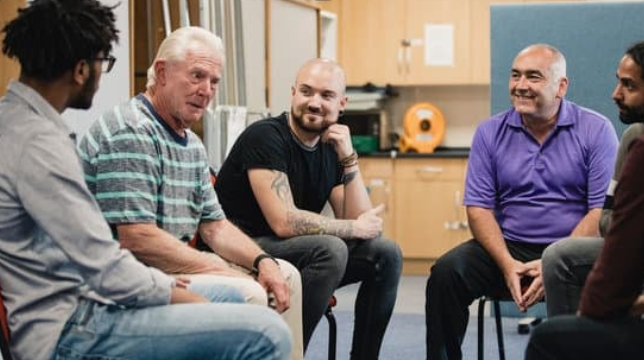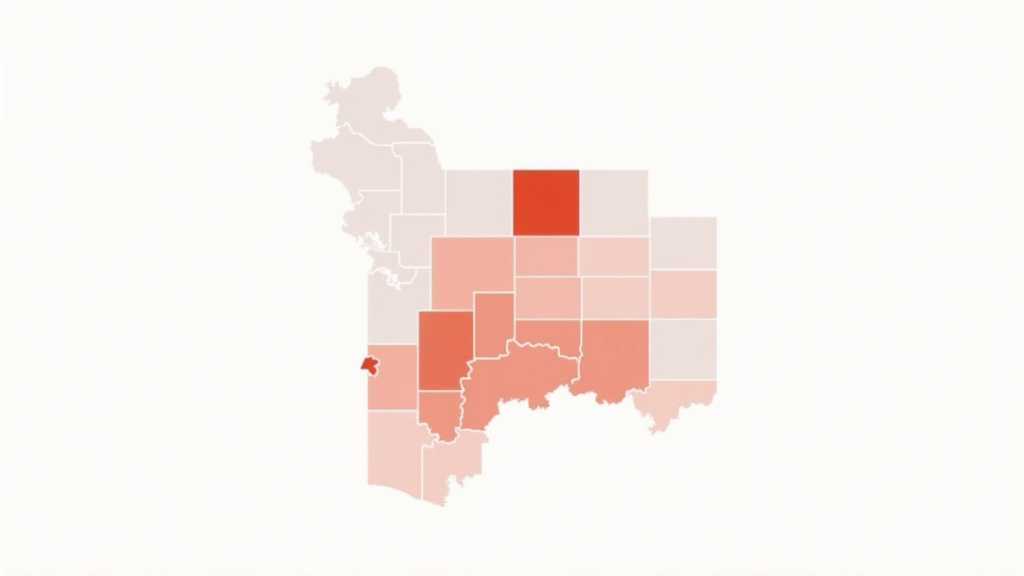What Happens When You Mix Cocaine & Alcohol? Effects & Risks
Combining cocaine and alcohol creates a dangerous chemical reaction in your liver.
When you mix these substances, your body produces cocaethylene, a toxic compound that stays in your system longer than cocaine alone and dramatically increases your risk of sudden cardiac death by up to 25 times.
This article explains the physical and psychological effects of mixing cocaine and alcohol, the specific dangers of cocaethylene formation, and what you need to know to protect your health.
What Happens When You Mix Cocaine and Alcohol?
When alcohol and cocaine enter your body at the same time, something unexpected happens in your liver. Instead of processing cocaine normally, the presence of ethanol triggers a different metabolic pathway.
Your liver produces cocaethylene, a third compound that is neither cocaine nor alcohol but a psychoactive metabolite with its own distinct properties.
Cocaethylene forms through a process called hepatic transesterification. This happens when liver enzymes modify cocaine molecules in the presence of ethanol.
The resulting compound has a longer half-life than cocaine, meaning it stays in your bloodstream longer and extends the duration of stimulant effects.
While this may seem appealing to some users, the prolonged exposure comes with substantially greater toxicity to your heart, liver, and brain.
This metabolic interaction is not simply additive. You are not just experiencing the effects of two separate drugs. Instead, you have created a third substance that amplifies certain dangers while adding unique risks of its own.
Cocaethylene formation occurs across all routes of cocaine administration, whether snorted, smoked, or injected, as long as alcohol is present in your system.
Effects of Cocaine and Alcohol Together
The immediate effects of mixing cocaine and alcohol differ from using either substance alone. Users often report that alcohol appears to enhance and prolong the euphoric effects of cocaine.
This happens because cocaethylene retains stimulant properties similar to cocaine but with extended duration.
Physical Effects
Your cardiovascular system bears the brunt of this combination. Cocaine alone increases heart rate, blood pressure, and constricts blood vessels.
Adding alcohol intensifies these effects through cocaethylene. Your heart works harder, pumping against increased resistance while your coronary arteries narrow, reducing blood flow to the heart muscle itself.
In emergency department settings, patients who have used both substances show distinct patterns. Recent research found that those with detectable cocaethylene had higher rates of cardiac arrest compared to cocaine-only users.
They also showed elevated lactate levels, indicating metabolic stress on the body. Interestingly, these same patients often had lower initial troponin levels, a marker of heart muscle damage, suggesting a different type of cardiac injury focused more on electrical disturbances than tissue death.
Your liver also faces increased strain. Cocaethylene is hepatotoxic, meaning it directly damages liver cells. When combined with alcohol’s well-known liver effects, you face compounded risk of both acute injury and chronic damage over time.
Psychological Effects
The psychological effects mirror and extend those of cocaine alone. You may experience heightened alertness, increased energy, and intensified euphoria.
However, cocaethylene also reduces your perception of alcohol intoxication. This creates a dangerous feedback loop where you may drink more than usual because you feel less drunk, further increasing cocaethylene production and toxicity.
Agitation, anxiety, and paranoia can intensify with combined use. Some people experience aggressive behavior or poor judgment that they would not display with either substance alone.
The extended duration of effects means these psychological states persist longer, increasing the window for risky decisions or dangerous situations.
The Cardiac Dangers You Cannot Ignore
The cardiovascular risks of mixing cocaine and alcohol represent the most immediate life-threatening danger.
A 2024 systematic review concluded that simultaneous use clearly elevates risk of arrhythmias, heart attacks, and sudden death compared to cocaine alone.
Sudden Death Risk
The most alarming finding in recent research is the magnitude of sudden death risk when cocaethylene is present.
Studies indicate that cocaethylene detection is associated with an 18 to 25 fold higher risk of sudden cardiac death compared to cocaine without alcohol.
This dramatic increase likely stems from cocaethylene’s effects on cardiac ion channels, which control the electrical signals that coordinate your heartbeat.
When these channels malfunction, your heart’s rhythm becomes unstable. You can develop life-threatening arrhythmias like ventricular fibrillation, where the lower chambers of your heart quiver uselessly instead of pumping blood. Without immediate defibrillation, this rhythm is fatal within minutes.

Two Types of Heart Injury
Emerging evidence reveals that cocaine alone and cocaethylene produce somewhat different cardiac injury patterns.
Cocaine by itself tends to cause more ischemic injury, where blocked or constricted arteries starve the heart muscle of oxygen, leading to heart attacks with detectable tissue damage and elevated troponin markers.
Cocaethylene, while still capable of causing ischemia, appears more arrhythmogenic. It disrupts the heart’s electrical system more profoundly.
This explains why emergency department data shows cocaethylene users having more cardiac arrests but sometimes lower initial troponin levels. The heart stops from electrical chaos rather than from muscle death, though both can occur.
Animal studies confirm these mechanisms. In controlled experiments, cocaethylene caused dose-dependent conduction slowing, with dramatic increases in the time required for electrical signals to travel through the heart.
At higher doses, animals experienced ventricular fibrillation and cardiac arrest.
The Danger Persists Beyond Acute Use
Your cardiovascular risk does not disappear when the high wears off. Research on people in recovery from cocaine and alcohol use disorders found persistent cardiac biomarker abnormalities even during abstinence.
Those with cocaine use history showed elevated high-sensitivity troponin T, while those with alcohol use history showed elevated troponin I. Both markers indicate ongoing stress and injury to heart muscle.
This means that if you regularly mix cocaine and alcohol, you may be accumulating silent heart damage that increases your risk of future heart problems, even after you stop using.
How Cocaethylene Increases Addiction Risk?
Beyond the immediate physical dangers, the formation of cocaethylene may make it harder to stop using cocaine and alcohol together.
The combination creates a distinct reinforcement pattern that differs from either drug alone.
Cocaethylene prolongs the euphoric effects of cocaine. While cocaine’s high typically peaks quickly and fades within 30 to 60 minutes, cocaethylene extends this window.
Users experience a longer period of stimulant effects, which many find more satisfying than cocaine alone. This extended reinforcement window can strengthen the association between using both substances and feeling good, making the combined use pattern more deeply ingrained.
The prevalence of combined use supports this concern. Research indicates that 74 to 92 percent of cocaine users also drink alcohol, and a substantial portion use them simultaneously.
This is not a coincidence. Users often report that the combination provides subjective benefits that neither substance delivers alone, including reduced anxiety from cocaine and decreased sedation from alcohol.
From a treatment perspective, this creates challenges. You are not just breaking one habit but disrupting an integrated pattern where each substance cues use of the other.
The most effective treatment approach for stimulant use disorders is contingency management, where you earn rewards for verified abstinence.
Recent trials show that adding acceptance and commitment therapy to contingency management improves early abstinence rates, and early success predicts long-term outcomes.
Risks During Pregnancy and Reproductive Health
If you are pregnant or planning to become pregnant, the risks of mixing cocaine and alcohol multiply. Both substances individually pose serious threats to fetal development, and emerging evidence suggests that dual exposures may have compounding effects.
Cocaine use during pregnancy is associated with preterm birth, low birth weight, and reduced growth.
While early claims about catastrophic developmental damage have been tempered by better research, the obstetric risks remain clear and consistent. Cocaine constricts blood vessels in the placenta, reducing oxygen and nutrient delivery to the developing fetus.
Alcohol is a known teratogen that can cause fetal alcohol spectrum disorders, affecting brain development and causing lifelong cognitive and behavioral challenges. Even moderate drinking during pregnancy carries risk.
Although direct research on simultaneous cocaine and alcohol exposure in pregnancy is limited, studies of other dual exposures provide concerning insights.
Research on combined prenatal drinking and smoking found that continuing both substances after the first trimester nearly tripled late stillbirth risk compared to using neither or quitting early.
The dual exposure risk exceeded either single exposure, suggesting multiplicative rather than additive harm.
The American College of Obstetricians and Gynecologists recommends universal screening for substance use at the first prenatal visit using validated tools, paired with brief intervention and referral to treatment.
Screening should be non-punitive and conducted with consent, as punitive approaches deter women from seeking prenatal care and worsen outcomes.

Key Differences: Cocaine Alone vs Combined Use
Understanding how cocaethylene changes the risk profile can help you appreciate why mixing these substances is particularly dangerous.
| Risk Factor | Cocaine Alone | Cocaine + Alcohol (Cocaethylene) |
| Duration of effects | 30-60 minutes | Extended, 2+ hours |
| Primary cardiac risk | Ischemic injury, heart attack | Arrhythmias, sudden death |
| Sudden death risk | Baseline elevated | 18-25 times higher |
| Cardiac arrest in ED | Lower occurrence | Significantly higher odds |
| Metabolic stress markers | Moderate lactate elevation | Higher lactate levels |
| Liver toxicity | Moderate | Enhanced hepatotoxicity |
| Perception of intoxication | Accurate | Reduced, leading to more drinking |
This table illustrates that you are not simply doubling your risk by combining substances. You are creating a qualitatively different and more dangerous toxicological scenario.
What Emergency Departments See?
Emergency physicians have learned to recognize the distinct patterns associated with cocaethylene toxicity. When someone arrives after using both cocaine and alcohol, the clinical picture often differs from typical cocaine overdose.
These patients may present with severe agitation or altered mental status. Their vital signs often show marked tachycardia (rapid heart rate) and hypertension (elevated blood pressure).
Lab work frequently reveals elevated lactate, which in the context of alcohol use may reflect metabolic disruption rather than pure inadequate blood flow.
The real danger lies in the unpredictability of cardiac events. A patient who initially appears stable can suddenly develop life-threatening arrhythmias.
The conduction delays caused by cocaethylene create an unstable electrical substrate in the heart, where a single ectopic beat can trigger ventricular tachycardia or fibrillation.
Treatment focuses on supportive care, managing agitation with benzodiazepines, correcting electrolyte abnormalities, and having defibrillation immediately available. There is no specific antidote for cocaethylene toxicity.
The medical team must support vital functions while the drug clears from your system, which takes longer than cocaine alone due to cocaethylene’s extended half-life.
The Bottom Line on Mixing Coke and Alcohol
The evidence is clear and consistent across multiple lines of research. Mixing cocaine and alcohol is not just risky, it is substantially more dangerous than using either substance alone.
The formation of cocaethylene creates a perfect storm of increased toxicity, prolonged effects, and dramatically elevated risk of sudden death.
From a cardiovascular standpoint, the 18 to 25 fold increase in sudden death risk associated with cocaethylene should be considered a medical emergency in the making.
Every episode of combined use is a roll of the dice with your heart’s electrical system. You may have gotten away with it before, but the risk remains every single time.
The addiction dimension compounds the problem. The reinforcing properties of cocaethylene make the pattern harder to break, and the high co-use rates suggest that most people who use cocaine also drink, often simultaneously.
This is not a separate problem but an integrated pattern requiring specialized treatment approaches.
For pregnant individuals, the stakes extend beyond your own health to the developing life you carry.
The risks of preterm birth, growth restriction, and potential stillbirth make any use during pregnancy a serious concern, and combined use may amplify these dangers.
Getting Help and Moving Forward
If you recognize yourself in this article, if you have been mixing cocaine and alcohol or know someone who has, the most important message is this: the risk is real, it is serious, and help is available.
The cardiac dangers are not scare tactics or exaggeration. They are documented in emergency department data, systematic reviews, controlled animal studies, and mortality statistics.
The sudden death risk is measurable and substantial. The good news is that risk decreases when you stop, and modern addiction treatment can support your recovery effectively.
Evidence-based approaches like contingency management combined with therapy have shown strong results for stimulant use disorders. These treatments work, and they are accessible. You do not have to navigate this alone, and you do not have to wait until you experience a medical emergency to seek help.
Your heart is remarkably resilient, but it is not invincible. Every episode of combined use damages the foundation of your cardiovascular health.
If you are concerned about changes to your heart from past use, discussing cardiac biomarker testing with your doctor during early recovery can identify issues before they become critical.
Recovery is possible, and people successfully overcome cocaine and alcohol use disorders every day. The therapeutic community model has helped thousands of people build lasting sobriety through structure, peer support, and comprehensive care.
If you are ready to take that step, reach out for MARR evidence based treatment that addresses both your substance use and your overall health.



